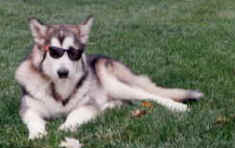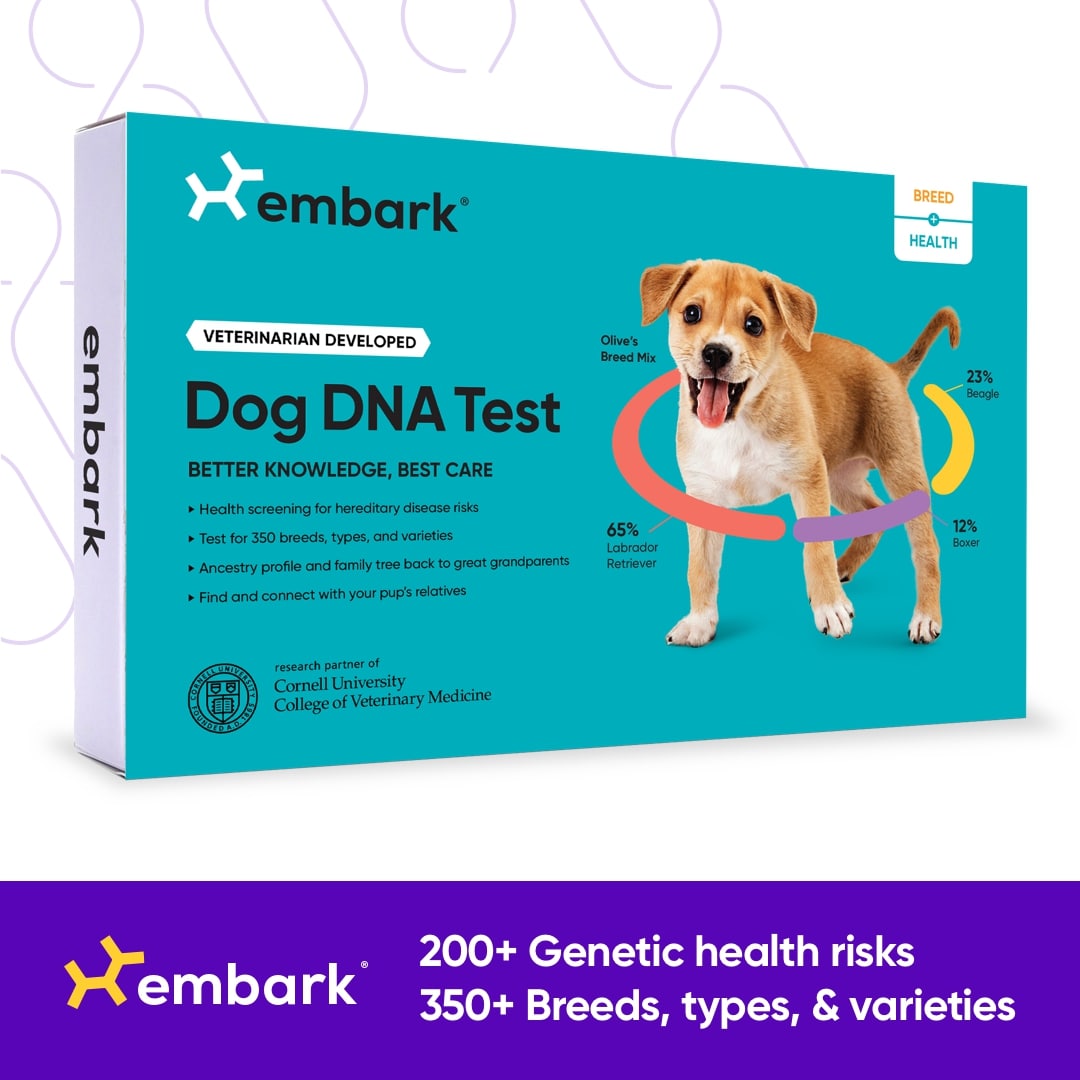Hemeralopia - Day blindness 
I had heard of this - in all the Malamute literature I've read over the years says that this is a problem in the breed. However, until recently I had never heard of any Malamute having it. Recently a friend told me her Mal, a rescue, had this so I did a little more research as it piqued my interest. Where does it come from? Just what is it? How delibitating is it? Here's a summary of what I found out.
Day blindness is, as its name implies, a condition which causes dogs (in this case the Alaskan Malamute) to be blind in bright light. Day blindness is an inherited problem. Puppies inherit this condition from their parents. The genetic defect is recognized by geneticists as an autosomal recessive (not linked to sex).
For an affected Malamute in a litter, both parents must at least be carriers. Affected Malamutes should never be bred from. But it is the carriers of this condition that are the real risk to the breed because there is currently no genetic test for this disorder.
What to Look For with Day Blindness in a Malamute
Affected Malamutes are quite easily recognized by diligent owners. The condition frequently begins to manifest itself when a puppy is about 8 weeks old. If you watch, you will notice the following symptoms:
- bumping into or stumbling over things
- stumbling up stairs/steps, or refusing to go up them
- can't seem to find a thrown toy or ball without sniffing for it
- growling at strangers that approach without warning
- prefers shaded areas, has to be coaxed into sunlight
- seems totally disorientated when facing the sun
- comes better for sound than a visual gesture
- tripping in holes/depressions a normal dog would see
At night, all problems seem to go away...the Malamute can suddenly:
- chase a ball into dark areas and retrieve it without difficulty
- negotiate steps with confidence
- not trip in holes
- clumsyness is gone
How to be sure it's Hemeralopia or Day Blindness?
The condition of Day blindness (Cone degeneration) sometimes can be detected by a regular veterinarian, and always by a veterinary Ophthalmologist. If there is any doubt, an Electroretinograph (ERG) can be done by a Veterinary Ophthalmologist. There are several Ophthalmology/Veterinary Clinics in Michigan. Ask your veterinarian to refer you to one.
There is currently no DNA test to identify carriers, but work is being done to identify carriers. Unfortunately the only current way to know is if an affected puppy is produced. If a puppy is produced, both parents are carriers and should be removed from the breeding program. BOTH parents.
In the US in the late 50's and 60's this problem appeared (and in the mid-60's in England). Through the diligent efforts of a few dedicated breeders that willingly test bred their kennel stock of Malamutes was Day blindness was shown to be inherited an autosomal recessive defect. This problem has now spread to Australia and worldwide from Malamute stock that originated in the US.
For the afflicted Alaskan Malamute, the condition is not life-threatening provided it is kept in a safe, escape-proof yard, and is only ever exercised ON LEAD! But that's a requirement in my mind for ALL Malamutes - so other than some fearfulness during daylight, and potential aggressivness if not handled properly, there is no reason to put the dog down. Obviously you should not breed it!
The dog can lead a perfectly normal life as a housepet with a few concessions to it's disability (use sound or scent signals rather than hand signals for example). It would not be a good candidate for sledding or some other daytime outdoor activities and this is why it's a serious problem in the breed. This disability has probably been with Malamutes from the beginning of time - and would have been a quite serious problem for his Inuit owners - with the glare from snow in the arctic the dog would be essentially blind all the time (especially during seasonal periods of daylight). However, for most "Malamute dogs" today this is not as serious an issue, though obviously any dogs with this condition should not be bred.
Some owners may decide to return the puppy to the Breeder, perhaps because they feel they cannot cope with their Malamute's disability. If another puppy is offered from the same genetic stock may also have the condition or be a carrier for the condition. Certification can be provided by a Veterinary Ophthalmologist to clear any dog suspected of being affected by the condition. Make sure your puppy's parents have been cleared by CERF before purchase. (Canine Eye Registry Foundation). A reputable breeder will always CERF the parent's eyes to check for any abnormal condition such as cataracts, day blindness, etc.
I understand there is now a genetic test for this disease. The DNA test is available at OptiGen for the mutation that causes this disease. If you know of any day-blind malamutes, they may be able to test them for the mutation at no charge as part of the research program. Contact:
Sue Pearce-Kelling
President and Manager, OptiGen, LLC
Cornell Business& Technology Park
767 Warren Road, Suite 300
Ithaca, NY 14850
www.optigen.com
ph: (607) 257-0301
fax: (607) 257-0353




















